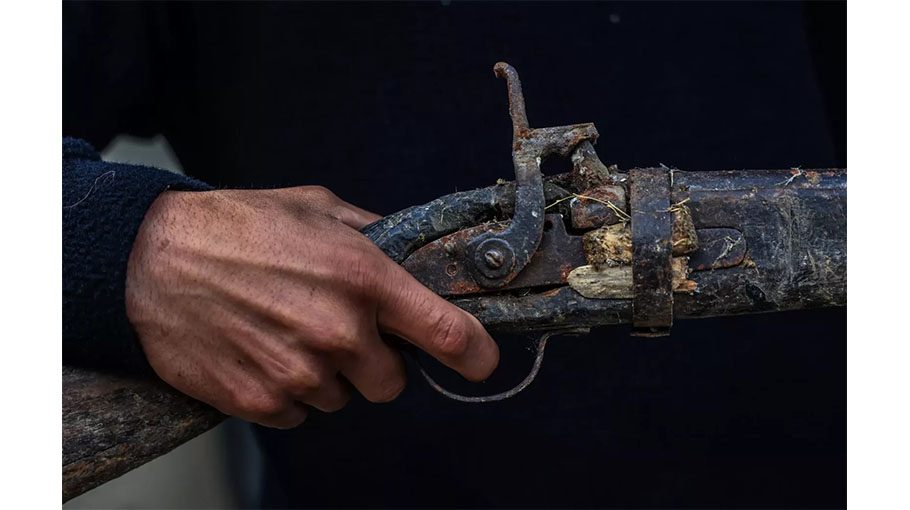Wildlife and weapons trafficking converge in Southeast Asia

Michael Picard
On 13 June 2024, Indonesian police displayed weapons and ammunition seized from an alleged trafficking network in North Maluku. The suspects apparently sold over 100 endangered lories, cockatoos and parrots in the Philippines and used the profits to buy M16s and a shotgun. Police interdicted them as they returned to Indonesia and seized more weapons during follow-up investigations.
This is neither the first instance of arms trafficking from the Philippines to Indonesia nor the first time endangered birds were trafficked between the two countries. Prior cases have involved trafficking networks connecting Mindanao with North Maluku and nearby North Sulawesi, which lie across the Celebes Sea.
What’s unique about this case is the convergence of the two criminal economies. Criminal convergence is the overlapping occurrence of two or more illicit economies in ways that enable each other. This can take several forms, such as when one group diversifies illicit sources of income, two groups barter one illicit good for another or multiple groups share smuggling infrastructure, methods and service providers.
Convergence empowers criminal actors and exacerbates the impacts of illicit economies, such as armed violence and biodiversity loss. In Southeast Asia, arms trafficking appears to converge most often with drug trafficking and smuggling contraband goods such as untaxed cigarettes, fuel, alcohol or rice. When firearms converge with wildlife trafficking, it is typically to facilitate poaching, which is itself devastating. Yet there have been few documented incidents in the region of illicit firearms and trafficked wildlife being indirectly bartered.
Part of the reason for this may be that other illicit products — namely drugs and undeclared goods like cigarettes — are far more fungible, easier to source and transport and offer better profit margins. Firearms are more likely to gravitate around drugs and other contraband as a means of protection and coercion in a risky, competitive market environment. Wildlife traffickers likely do not face similar market pressures. The North Maluku seizure is therefore a rare fusion of two major criminal economies in Indonesia and the Philippines. According to the Global Initiative Against Transnational Organized Crime, bird trafficking was once commonplace in markets throughout the country. Government crackdowns since the 1970s and rapid digitisation moved the trade to social media platforms, e-commerce sites, courier services and digital payment systems. A 2022 Global Initiative study on online bird trafficking in Indonesia identified over 1000 unique advertisements for endangered bird species in 600 private Facebook groups. Elsewhere in Southeast Asia, digitisation appears to have accelerated cross-border trafficking as social media connects buyers from one country to cheaper, more accessible illicit markets in another.
The Philippines arguably has one of the largest pools of illicit firearms in Southeast Asia. Security forces often report seizing military-grade weapons, especially in conflict-affected Mindanao, which is home to a range of armed actors. Police have netted valuable military weapons from gun traffickers and armed group members in the Bangsamoro Autonomous Region of Muslim Mindanao amid fragile conflict transitions with Moro rebel groups. Such seizures suggest the decommissioning of these groups has created new arms trafficking opportunities, often facilitated through brokers embedded within clan networks and local governments.
These developments could benefit illicit actors in Indonesia, including Papuan separatist armed groups and jihadist organisations. Indonesian militants have reportedly sought weapons and military training in Mindanao, while armed groups members active in the Celebes and Sulu seas likely engage in drug running and other illicit activities.
There are several possibilities for why such convergence would happen. It could be a result of increased contact between two dynamic illicit markets, particularly in a geographic area marked by cross-border kinship networks, maritime subsistence and weak state presence. Traffickers may assess that bartering rare wildlife poses fewer risks than drugs, which security forces invest significant resources in detecting and preventing. It could also be the result of transition as former fighters seek to sell unneeded weapons. Responding to convergent criminal economies requires bilateral and regional cooperation. This is especially true given the maritime dimension of trafficking networks, which may rely on poorly demarcated maritime boundaries to evade law enforcement.
Mismatched and insufficient state resources as well as the possible complicity of state officials in illicit economies complicate efforts to cooperate on transnational security issues. It is unclear to what extent Philippine and Indonesian law enforcement agencies cooperated in the birds-for-guns incident, though both have expressed willingness to engage on arms and wildlife trafficking issues.
They should transparently bolster and experiment with joint countertrafficking efforts, which could entail streamlining boundary demarcation, maritime patrol access, increased intelligence sharing or joint investigations. The Association of Southeast Asian Nations could promote bilateral and multilateral cooperation as well. Open-ended firearm buyback campaigns could reduce excess supply, while increased cooperation with civil society could enhance awareness and detection.
Tracking criminal convergence at a regional level requires sustained monitoring, which could be efficiently executed by a regional civil society organisation. An independent monitor would ensure transparent access to information as well as a meaningful civil society contribution to security discussions. Such monitoring would inform policies to counter organised crime and diverse illicit economies.
Michael Picard is an independent researcher focusing on arms trade, corruption and conflict. He is an expert at the Forum on the Arm Trade.
Source: East Asia Forum




